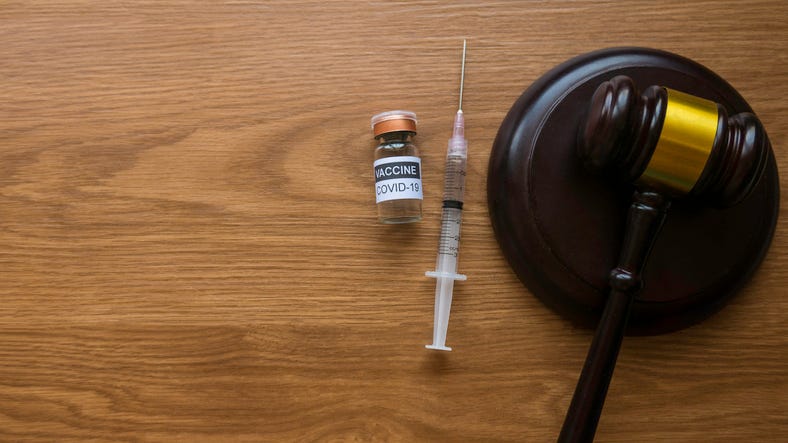
With COVID-19 vaccinations on the verge of receiving approval from the FDA for all age ranges, some divorced parents are having trouble deciding what to do, leaving the decision of whether or not to vax to family courts instead.
Family courts across the nation have seen an increased number of COVID-19 vaccine disputes between parents since the shot was approved for children late last year.
This issue has grown, especially in states where decisions about children's health must be jointly made by parents who share legal custody.
Hundreds of divorced parents in Pennsylvania, Delaware, New York, Wisconsin, New Jersey, and more have all had to go through this same process in an effort to agree on getting, or not getting, the shot.
A family law attorney in Pennsylvania, Hillary Moonay, shared with NPR that her firm has seen disputes over COVID, specifically the vaccine, throughout the pandemic.
"I've been doing this for 25 years, and in that time frame, I've probably seen two to three cases related to disputes over children getting vaccines," Moonay told NPR, adding that now her law firm, located in four states, is seeing cases at least once a week.
Moonay's law firm isn't the only one to see this either, as a New Jersey firm, Rozin Golinder Family Law, shared on their website information for parents who need assistance on the matter.
"New Jersey family law Courts are tasked with settling disputes when co-parents disagree on key issues, though our New Jersey family lawyers advise parents to try reaching an agreement without Court intervention if possible," the firm wrote.
Norm and Heather, a couple interviewed by NPR with their last names kept off the record for privacy, shared that while they have found a way to settle disputes cordially in the seven years since they separated, they could not come to an agreement on the vaccine.
While Heather wanted to have her children vaccinated as soon as possible, Norm did not, saying that severe COVID cases being less common among children made him feel safe, especially with the vaccine being new, NPR reported.
The decision was not politically charged, as both Norm and Heather have been vaccinated, but the less than 1,000 deaths from COVID-19 among kids under 18 made him feel that the risk was greater to get vaccinated, being that the effects in the years to come are not known, NPR reported.
"It makes sense for me," Norm said to NPR. "But again, in my mind it does not make sense for a 9- and 11-year-old healthy child."
Nonetheless, the couple came to a disagreement that they could not settle, forcing them to meet with a mediator who would pass them along to the court if they could not reach an agreement.
After a mediator was not able to settle the decision between the parents, it was passed along to a judge who listened to both parents argue their reasoning for whether or not to vaccinate.
This included studies on the adverse effects of new vaccines and recommendations from the CDC and their children's doctor, NPR reported.
In cases like this, family courts do not decide what the child does or doesn't do but instead give the decision-making power to one of the parents, family law attorney Daniel Overbey told WSAW.
"If they have joint custody, it means both parents have the right to make those decisions and that neither parent has a superior right to the other," Overby said. "Of course, that's where you get into it if they're diametrically opposed to what they want to do."
In the end, the judge decided to grant Heather sole decision-making power for COVID-19 vaccines, to which she scheduled an appointment and got both of her kids vaccinated.
While Heather and Norm needed to go to court to decide what to do, firms still recommend that parents attempt to agree outside of court.
"Getting a decision on matters like this could take months, many motions, hearings and litigation," RG Family Law wrote. "It can go on even longer if there are appeals. This is why we advise parents to at least try mediation first, see if they can reach an accord together. If they cannot, we can help."


